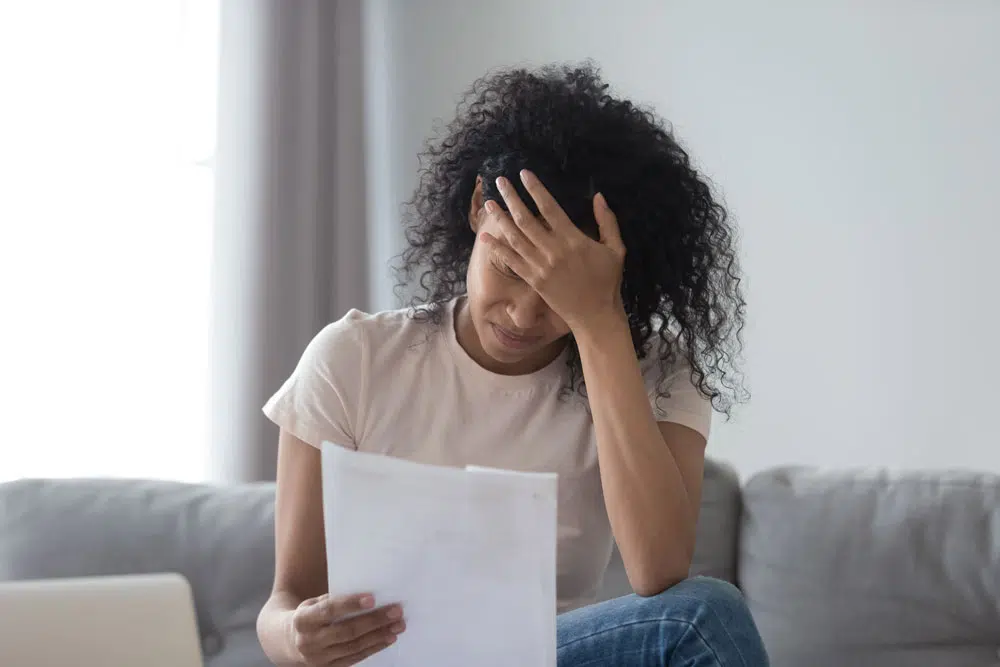To have and to hold. Those are part of many traditional wedding vows. That word, “hold,” is directly related to another word: tenant. Tenants — folks renting a space from a landlord — are named from the Latin word tenere, “to hold.” Unless your wife is a tenant in your marital home, you have no legal right to kick her out.
If Wishes Were Fishes
The old proverb, “If wishes were fishes, we’d have some fried,” tells us that you do not always get what you wish for. You might wish mightily to get your wife out of your house before a divorce, but Virginia law does not back you up.
The process for eviction under Code of Virginia begins with a Warrant for Unlawful Detainer, under § 8.01-124 and subsequent sections. Those laws only apply to landlords and tenants:
For the purposes of this section, “termination notice” means a notice given under § 55.1-1245 or other notice of termination of tenancy given by the landlord to the tenant of a dwelling unit …
Ask yourself: are you a landlord owning your marital house? Is your wife a tenant? Nope, and nope (in most cases; do please let us know if you have some other arrangement). You can get yourself into a lot of legal trouble by trying to evict your wife.
If Wishes Were Horses
One version of the proverb cutely ends with, “If wishes were horses, beggars would ride.” So how do you ride your wife outta town, or at least outta your house?
You file for divorce and have your divorce attorney file for you to take possession of the marital home. Your best strategy, with the strongest legal backing, is to work with your Virginia family law attorney. Avoid lawsuits, headaches, and heartaches.
When you file for a no-fault divorce in Virginia, neither you nor your wife is legally to “blame” for the marriage’s dissolution. If the house is titled in both your names, you both retain legal rights to it. Which, of course, means you can both continue to live under the same roof.
Locked Out, Locked In
Consider this saying from Virginia Woolf: “I thought how unpleasant it is to be locked out; and I thought how it is worse, perhaps, to be locked in.”
To divorce in Virginia through a no-fault process, you
- a) cannot evict your wife, and
- b) must live separately from her for at least six months (without children) or a year (with children), and
- c) she can continue to live in your house throughout your separation
Now, hold on there, we understand. That last part could be a … challenge. But you can do it! You can do it — you must do it — legally, sexually, physically, and emotionally. It is far better than the alternatives, such as the legally untenable idea of treating her as a tenant (which, again, she is not).
You might feel like the two of you are condemned to a self-imposed sentence behind — well, not bars exactly — but certainly icy walls. You must live separate lives within your marital home.
You sleep in a guest room, do your own laundry, buy your own groceries, the works. She cannot “accidentally” fall into your bed at night for a little late-night rumble-tumble. You cannot lift a finger to help her with chores or that peculiar back itch.
Of course, either of you can elect at any time to relocate to a friend’s house, a family member’s basement, a hotel, an RV — you do not have to live under the same roof. The one who leaves still retains title to his or her equitable portion of the house.
Geese and Ganders
Still not convinced? Then just remember the proverb about what’s good for the both of you. If you had some mysterious legal right to kick your wife out, then wouldn’t she have the same legal right to kick you out? Sure! But she doesn’t.
Still, that has not stopped plenty of spouses from trying to get the other spouse out. You can both try to drive each other batty, offer to buy the other one out, invite sleazy friends over; the works.
You can try all sorts of questionable tactics, some of which could get you in more legal trouble (lawsuits, charges of coercion). But legally, you cannot change the locks, cannot deposit her suitcases on the lawn, and cannot compel her to leave a home she has title to.
Talk to an attorney. Do what’s right, legally and ethically. Separate, divorce, buy her out of the house. That’s the right way to evict your wife.
Questions about spousal relations, Virginia family law, or divorce and separation? Contact us at The Firm For Men, or telephone our office at (757) 383-9184. We have attorneys ready to help you with the stickiest questions from evicting your wife to separating under the same roof.

